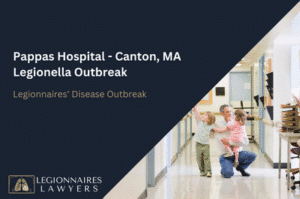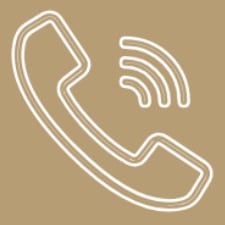Legionnaires’ disease is a serious form of pneumonia caused by Legionella bacteria, primarily Legionella pneumophila, through inhaled water droplets. Quick diagnosis and treatment are crucial—without them, the disease can lead to life-threatening complications.
You May Have a Case. We’re Here to Help.
Free ConsultationLegionnaires’ Disease Is Often Misdiagnosed
Legionnaires’ disease looks like regular pneumonia, so doctors need tests like urine samples and chest X-rays to confirm it. Fast antibiotic treatment is important.
Legionnaires’ Disease Basics
Legionnaires’ disease is more than a severe lung infection—it’s often linked to contaminated water systems in places like hospitals, hotels, nursing homes, gyms, cruise ships, and apartment buildings. Typically, it spreads when people inhale mist containing Legionella bacteria in HVAC units, showers, hot tubs, or fountains.
You May Have a Case. We’re Here to Help.
Free ConsultationWhat Causes Legionnaires’ Disease?
Legionella flourishes in warm, stagnant water and spreads via aerosolized droplets. Common sources include:
- Cooling towers
- Hot water tanks
- Plumbing systems
- Decorative fountains or misting systems
- Poor water management is the key risk factor in outbreaks.
How Does Legionnaires’ Disease Spread?
- By breathing in contaminated water mist, it’s not spread from person to person.
- Legionella grow inside slimy biofilms in pipes, especially where water is warm and still.
- They thrive in man-made water systems like cooling towers, hot tubs, and plumbing.
You May Have a Case. We’re Here to Help.
Free ConsultationSymptoms of Legionnaires’ Disease
Symptoms show 2–14 days after exposure and include:
- High fever, chills, headache, and muscle aches.
- Cough (often with chest pain) and shortness of breath.
- Sometimes gastrointestinal signs, like diarrhea or confusion.
Who’s at Risk?
- Adults 50+, smokers, those with weakened immunity, and recent hospital or long-term care patients.
- More common in summer and fall.
You May Have a Case. We’re Here to Help.
Free ConsultationHistory & Outbreaks
Named after the first outbreak at the 1976 Philadelphia American Legion convention, Legionnaires’ disease has since caused numerous U.S. outbreaks tied to hotels, hospitals, and cooling towers. Learn more about the disease’s history here.
Diagnosis & Treatment
- Tests used: urinary antigen, sputum cultures, chest X-rays.
- Treatment: antibiotics (levofloxacin, azithromycin), sometimes ICU support.
- Complications: lung damage or prolonged recovery in severe cases.
Learn more about diagnosis and treatment here.
You May Have a Case. We’re Here to Help.
Free ConsultationPrevention & CDC Guidelines
Preventive measures in building water systems include:
- Keeping water hot or cold enough to deter growth.
- Cleaning and disinfecting cooling towers, boilers, and spas.
- Following CDC or ASHRAE water management plans—legally required in many settings.
Legal Relevance & What To Do If Exposed
If you contracted Legionnaires’ disease due to contaminated water at a hotel, hospital, cruise ship, or other facility, you may have a strong basis for a legal claim.
You’ll need to:
- Prove exposure at the location (e.g., hotel, hospital, gym).
- Show negligence—that the owner or operator failed to maintain safe water systems as required by law.
- Demonstrate a direct link between the exposure and your illness, supported by medical and environmental evidence.
You May Have a Case. We’re Here to Help.
Free ConsultationWhat You Can Do Now
- Learn more about medical care.
- Understand your legal rights and the legal process.
- Take action today!
You May Have a Case. We’re Here to Help.
If you or a loved one were exposed to Legionnaires’ disease through contaminated water in a hospital, hotel, or other facility, Legionnaires Lawyers offers:
- Free, no‑obligation case evaluations.
- Nationwide representation.
- Proven results with expert witnesses and medical-scientific litigation.
You May Have a Case. We’re Here to Help.
Free Consultation
Recent Legionella Outbreaks
Our legal team keeps a close watch on Legionnaires’ disease outbreaks across the country. Recently, cases have been reported in:





